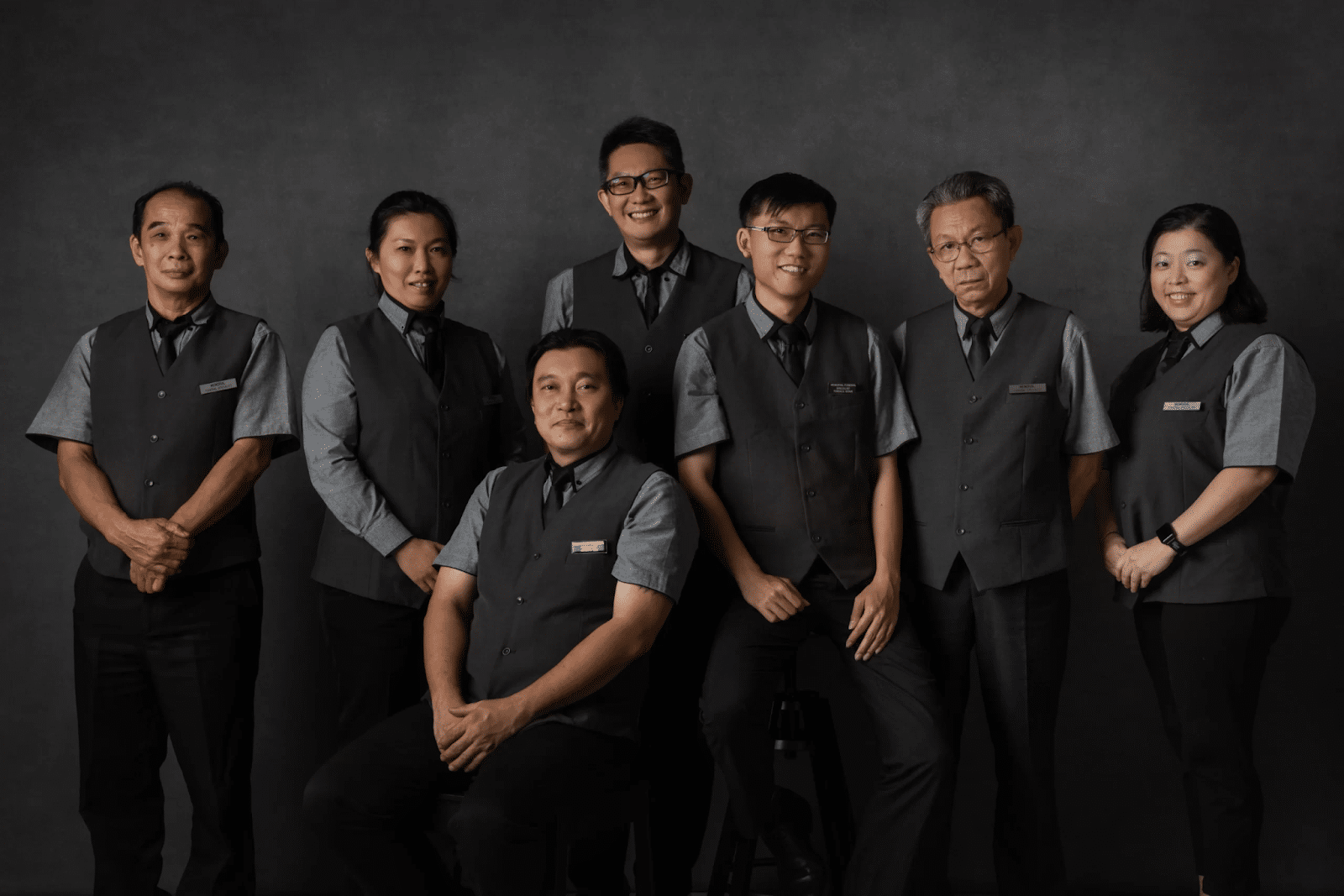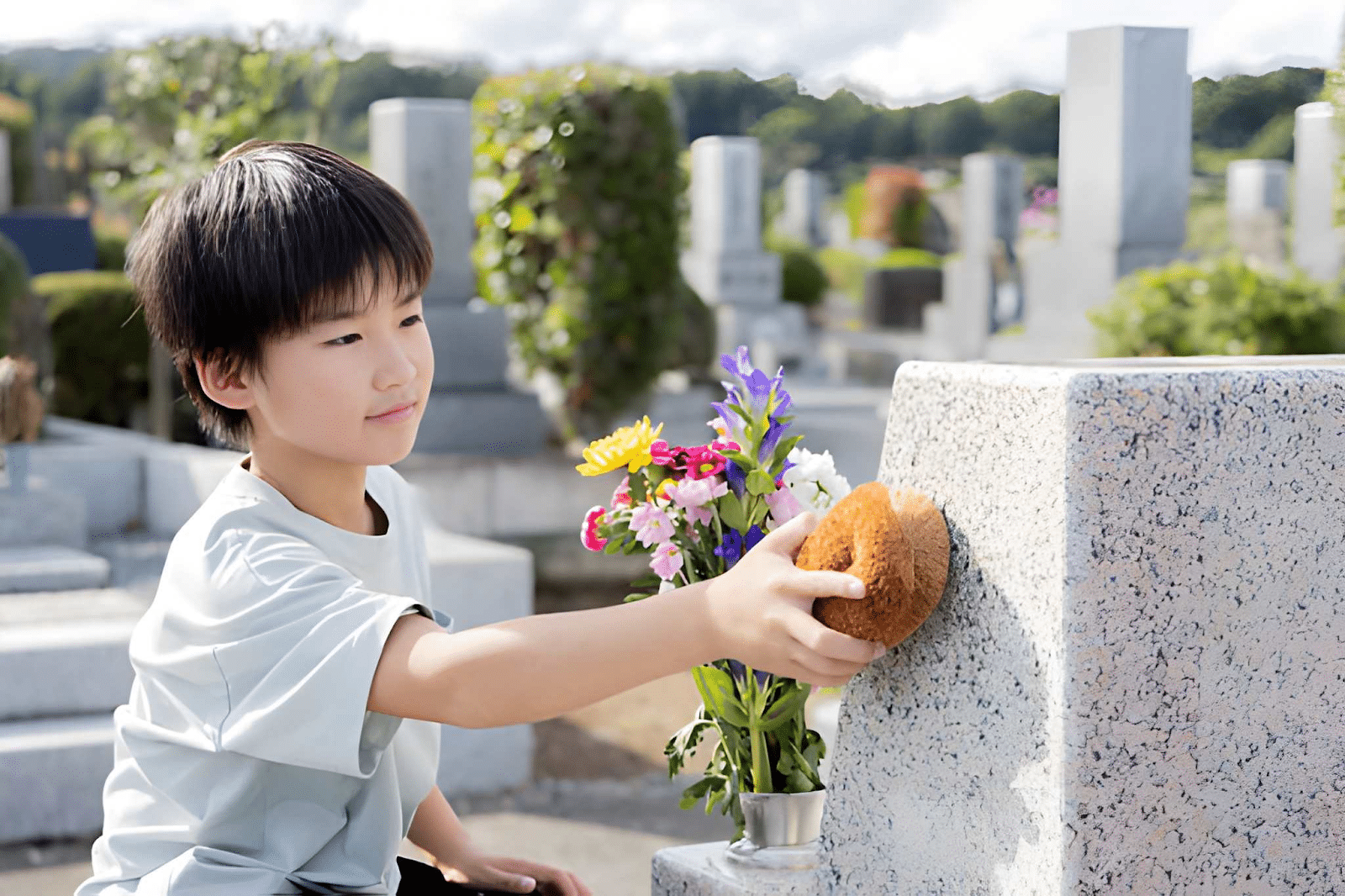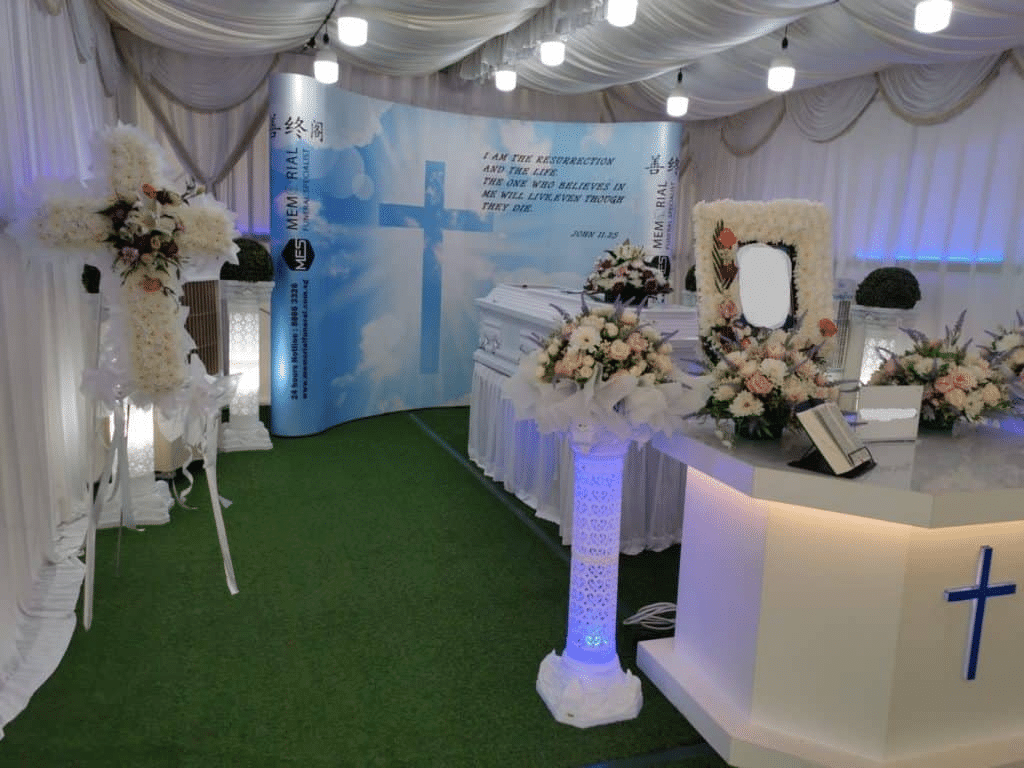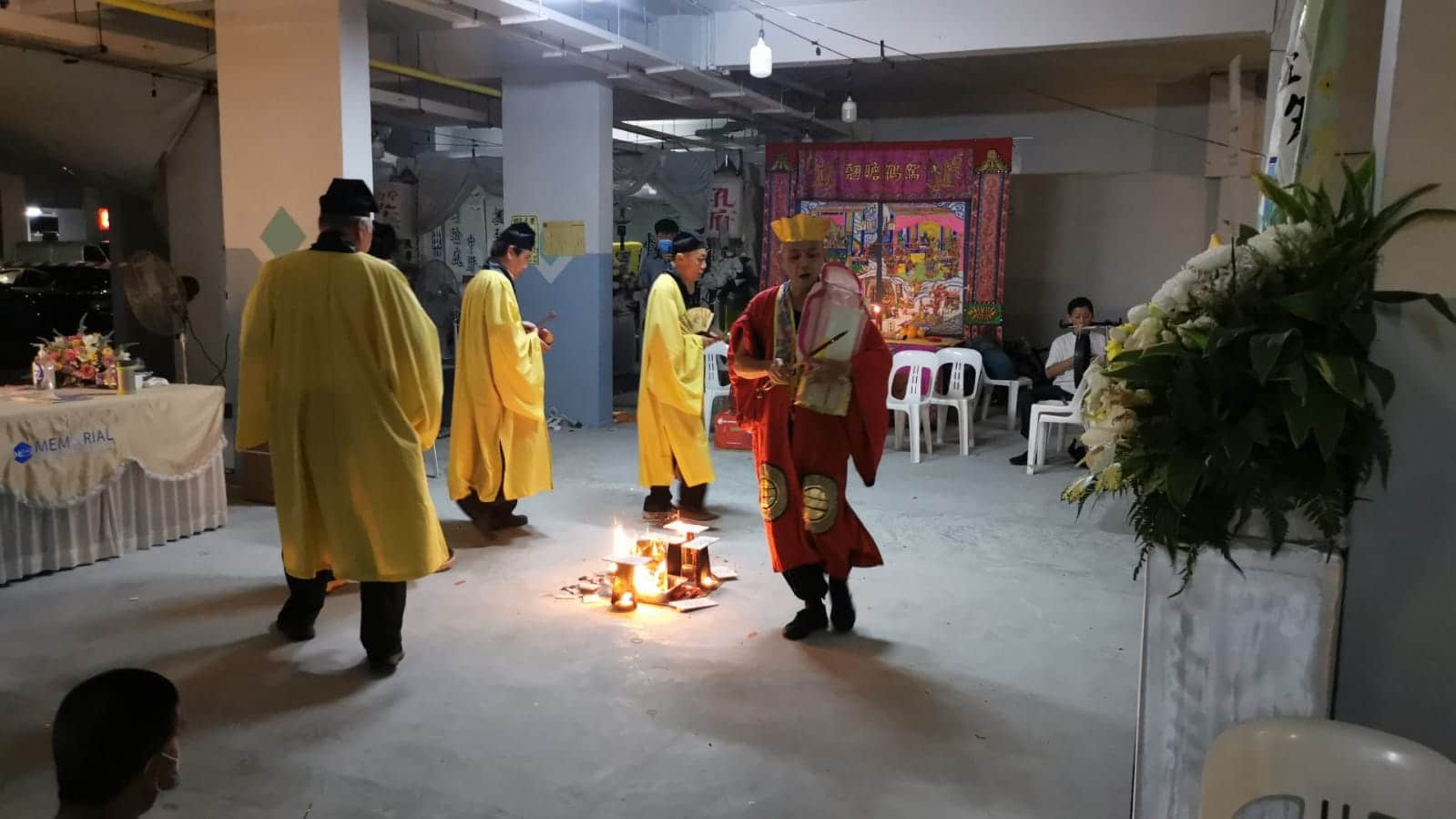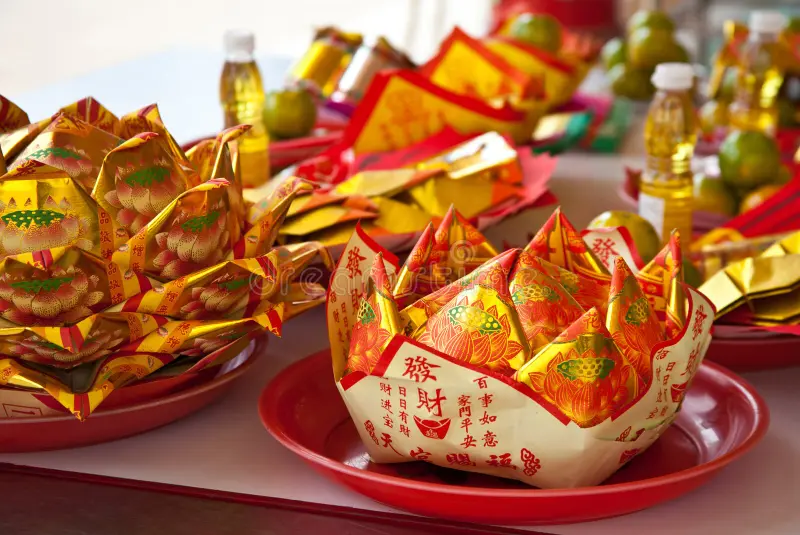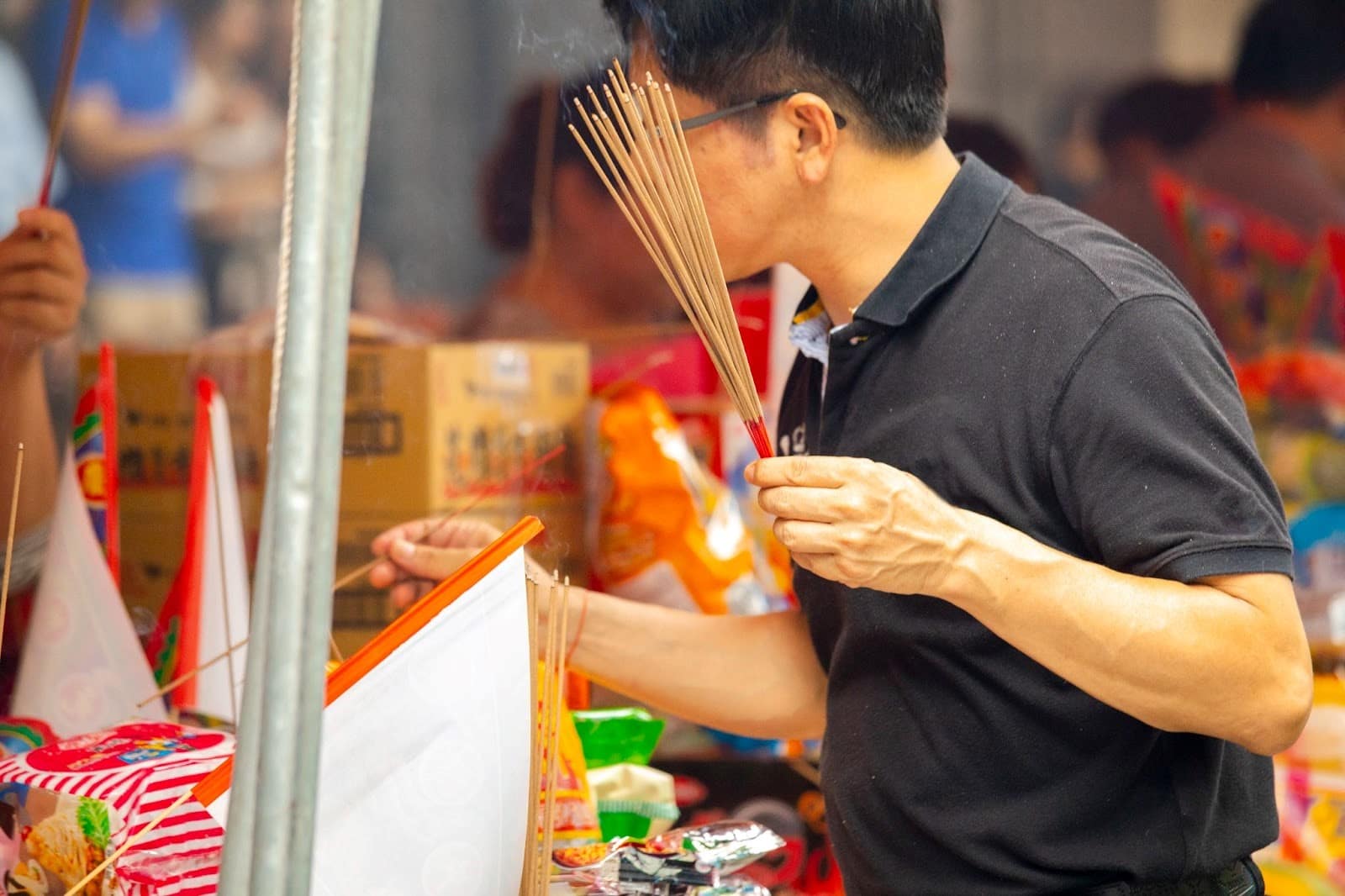Funerals are universally recognized as a significant and deeply ingrained aspect of human culture. These solemn ceremonies hold profound importance, serving as a bridge between the living and the departed. The multicultural tapestry of Singapore funeral is not only a means of bidding farewell to the deceased but also a testament to the nation’s rich and diverse heritage.
This article aims to offer a comprehensive exploration of funerals in Singapore. It delves into the specific practices of different ethnic groups, highlighting both the commonalities and distinctions among them. It sheds light on the legal, practical, and emotional aspects of preparing for and attending a funeral in Singapore. Additionally, it touches upon the evolving trends and challenges that the funeral industry faces in the modern era, particularly in the context of a rapidly changing society. By the end of this article, readers will gain a deep appreciation for the cultural richness and significance of funerals in Singapore, and they will be better equipped to navigate these sensitive and vital aspects of life in the nation.
Contact Us Today For Personalized Funeral Arrangement
We respond to all enquiries promptly. OR
OR
The Importance of Funerals
Funerals are pivotal moments in our lives, marking the transition from life to death. They allow us to come to terms with the reality of loss, providing a structured environment for grief and healing. Funerals serve as a final act of love and respect toward the departed, offering a platform for friends and family to celebrate the life that was lived and to say their last goodbyes. The significance of funerals goes beyond the individual, as they help communities come together to support one another during times of loss.
The Cultural Significance of Funerals in Singapore
Singapore is celebrated for its multiculturalism, with a harmonious blend of Chinese, Malay, Indian, and other ethnic groups coexisting on the island. Each of these communities brings its own unique funeral traditions and customs. Funerals are a cultural mosaic, reflecting the diverse heritage of the nation. They serve as a poignant reminder of the significance of culture, religion, and ethnicity in shaping how individuals and communities say their final farewells. Understanding these customs is not only a mark of respect but also a testament to Singapore’s unity in diversity.
Funeral Traditions in Singapore

Credits: Unsplash
Funerals are significant life events in Singapore, where multiculturalism is not just a buzzword but a way of life. The island nation’s diverse population, consisting primarily of Chinese, Malay, Indian, and various other ethnic groups, contributes to a rich tapestry of funeral customs and traditions. This article provides an overview of Singapore’s multiculturalism and explores the funeral customs of the major ethnic groups, highlighting both the commonalities and differences among these deeply rooted practices.
Multiculturalism in Singapore
Singapore stands as a testament to multiculturalism in action. This small but vibrant nation is home to a melting pot of cultures, languages, and religions. The harmonious coexistence of these diverse elements has played a pivotal role in shaping Singapore’s identity and way of life. The nation’s multiculturalism is a source of pride, celebrating each community’s unique traditions while fostering a sense of unity among its people.
Major Ethnic Groups and Their Funeral Customs
Chinese Funeral Customs
Chinese funerals in Singapore are marked by a blend of Confucianism, Taoism, and Buddhism. Key elements include:
Ancestor Worship: A core tenet involves paying respects to ancestors through rituals and offerings.
Funeral Rites: Elaborate ceremonies, such as chanting, burning incense, and the placement of offerings, are conducted.
Mourning Attire: Family members often wear white or subdued colors as a symbol of mourning.
Malay Funeral Customs
Malay funerals follow Islamic traditions, reflecting a deep sense of spirituality and community. Key elements include:
Quick Burial: Islam mandates swift burial, often on the same day as death.
Prayers and Washings: Ritual washing of the deceased’s body and communal prayers are integral to the process.
Community Support: Neighbors and friends gather to offer condolences and support.
Indian Funeral Customs
Indian funerals in Singapore differ based on religious affiliations, including Hindu, Sikh, and Buddhist traditions. Key elements include:
Cremation vs. Burial: Hindus usually opt for cremation, while Sikhs and Buddhists may choose burial.
Religious Rites: Specific rituals, such as chanting of prayers and scriptures, are performed.
Reincarnation Belief: Many Indian funeral customs are linked to the belief in reincarnation.
Commonalities and Differences Among These Customs
While these funeral customs may seem distinct, there are common threads that run through them:
Respect for the Deceased: All customs emphasize respect for the departed and a sense of closure for the family.
Community Involvement: Funerals are communal events, with neighbors and friends offering support.
Religious Significance: Each custom carries a deep religious or spiritual significance, reflecting the faith of the deceased and their family.
Preparing for a Funeral in Singapore

Credits: Unsplash
Saying goodbye to a loved one is a challenging and emotional process, and when it comes to preparing for a funeral in Singapore, understanding the legal requirements, paperwork, and funeral planning logistics is essential to ensure a smooth and respectful farewell. This article will guide you through the necessary steps involved in preparing for a funeral in Singapore.
Legal Requirements and Paperwork
Death Registration
The first and foremost legal requirement when a death occurs is to register it with the relevant authorities. This process serves several purposes, including keeping vital records and enabling the deceased’s family to proceed with the funeral arrangements.
Importance of Timely Registration: In Singapore, it’s mandatory to register a death within 24 hours. This requirement ensures that the deceased’s affairs are appropriately managed and that necessary permits can be obtained.
Required Documentation: To register a death, you’ll need the following documents:
- Certificate of Cause of Death (issued by a medical professional)
- Identification documents of the deceased
- Passport of the deceased (if applicable)
Process: Death registration can be done at various locations, such as hospitals, the Registry of Births and Deaths, or online through the official government portal. Typically, family members or the appointed next-of-kin handle this task.
Permits and Certificates
Depending on the chosen funeral arrangements, various permits and certificates may be required. Understanding these legal aspects is crucial to avoid delays in the funeral process.
Understanding Permits: Funerals in Singapore often require permits, especially for burial or cremation. These permits are essential to proceed with the chosen funeral arrangements.
Types of Certificates: Different certificates are needed for various funeral procedures. For instance, a Certificate of Cause of Death and a Burial Order are essential for different aspects of the process.
Obtaining Permits and Certificates: Funeral directors or family members typically initiate the process of obtaining the necessary permits and certificates. Funeral directors are experienced in navigating these requirements efficiently
.
Funeral Planning and Logistics
Choosing a Funeral Director
Role of a Funeral Director: Funeral directors play a pivotal role in managing funeral arrangements. They assist in coordinating various aspects of the funeral, ensuring that everything runs smoothly and according to the family’s wishes.
Selecting a Reputable Director: It is essential to choose a reputable and experienced funeral director. Seek recommendations from friends, family, or religious institutions, and verify their credentials and licenses.
Cultural Sensitivity: Given Singapore’s diverse population, a culturally sensitive funeral director is valuable. They can help families navigate the specific customs and traditions related to different ethnic and religious backgrounds.
Funeral Venue Options
Variety of Venues: Singapore offers a range of venues for funeral services, including funeral homes, places of worship (temples, mosques, churches), community centers, and even the deceased’s home. The choice often depends on personal preferences and cultural traditions.
Considerations for Venue Selection: When selecting a venue, factors such as the expected number of attendees, religious or cultural requirements, and budget should be taken into account. Some venues may also offer catering services for mourners.
Traditional vs. Modern Funeral Services
Traditional Practices: Traditional funeral services often adhere to cultural and religious customs, which vary among Singapore’s diverse population. These practices may include rituals, ceremonies, and specific customs unique to each community.
Modern Funeral Services: In contrast, modern funeral services may incorporate elements of personalization and innovation. They might involve technology, eco-friendly options, or unique ways of honoring the deceased’s life.
Balancing Tradition and Modernity: Families often choose between traditional and modern funeral services based on their cultural background and the wishes of the deceased. Striking a balance between preserving tradition and embracing modernity is a common approach.
Funeral Rites and Rituals

Credits: Funeral Guide
Funeral rites and rituals play a crucial role in Singapore’s multicultural society, reflecting the diverse traditions and beliefs of its major ethnic groups: the Chinese, Malays, and Indians. Each community has its unique customs and practices that guide them through the process of bidding farewell to their loved ones with respect and reverence.
Chinese Funeral Traditions
Ancestor Worship
Chinese funeral traditions in Singapore are deeply rooted in Confucianism, Taoism, and Buddhism, emphasizing the importance of honoring ancestors. Ancestor worship is a central theme, and it involves several significant rituals:
Ancestral Tablets: Families often have ancestral tablets or plaques dedicated to their ancestors, which are displayed prominently in their homes. During the funeral, these tablets may be brought to the funeral venue to receive offerings.
Funeral Offerings: Offerings of food, incense, paper money, and other symbolic items are made to the deceased to ensure a safe journey to the afterlife.
Joss Sticks and Incense: The burning of joss sticks and incense is common during Chinese funerals. It is believed to purify the surroundings and facilitate communication with the deceased’s spirit.
Funeral Offerings
Paper Offerings: Paper effigies of houses, cars, and money, as well as clothing and other items, are often burned as offerings during the funeral. These offerings are intended to provide for the deceased in the afterlife.
Mourning Attire
White or Black Clothing: Family members typically wear white or black clothing as a sign of mourning. White symbolizes purity, while black represents solemnity and respect for the deceased.
Malay Funeral Traditions
Muslim Burial Customs
The majority of Malays in Singapore are Muslims, and their funeral customs are rooted in Islamic traditions:
Quick Burial: Islam mandates that the deceased be buried as soon as possible, ideally on the same day as death. This practice reflects the belief in respecting the sanctity of life and facilitating the deceased’s journey to the afterlife.
Ghusl and Kafan: The body of the deceased is ritually washed (ghusl) and wrapped in a simple white shroud (kafan) before burial.
Prayers and Community Involvement: Family and friends gather for prayers, providing support and condolences to the bereaved.
Malay Cultural Practices
Tahlil: A recitation of the Quran, known as tahlil, is often performed during Malay funerals as a way of seeking blessings for the deceased.Traditional Practices: Some Malay families may incorporate cultural practices like drumming and chanting during the funeral procession, reflecting the fusion of Islamic and Malay traditions.
Indian Funeral Traditions
Hindu Funeral Rites
Hindu funerals in Singapore are conducted in accordance with ancient religious scriptures:
Cremation: Cremation is the preferred method of disposition, and it is typically conducted at a designated Hindu crematorium.
Purification and Rituals: The body is washed, anointed with holy water, and adorned with flowers before cremation. Priests perform various rituals, including the recitation of sacred verses.
Sikh and Buddhist Customs
Sikh Funerals: Sikhs in Singapore may opt for cremation or burial, depending on their family traditions. Religious texts are often recited during the funeral.
Buddhist Funerals: Buddhist funerals involve chanting and prayer ceremonies. Cremation is a common practice, and the ashes may be enshrined in a temple or scattered in a significant location.
Common Religious Practices and Prayers
Singaporean funerals are deeply intertwined with religious practices and prayers, as the majority of the population follows various faiths. These customs provide spiritual guidance, solace, and a sense of purpose during a difficult time.
1. Buddhist Funeral Practices and Prayers
Chanting: Buddhist monks or nuns often lead the funeral service, reciting sacred sutras and prayers. The chanting is believed to help the deceased transition peacefully to the next life.
Offerings: Buddhists make offerings of incense, candles, flowers, and food to the deceased. These offerings represent reverence and gratitude.
2. Hindu Funeral Practices and Prayers
Rituals: Hindu funerals involve elaborate rituals performed by priests. Key ceremonies include the lighting of a funeral pyre and the recitation of specific mantras to guide the soul to moksha (liberation).
Pinda Pradana: The offering of pinda (rice balls) to ancestors is a significant part of Hindu funeral customs. These offerings are believed to provide sustenance for the departed in the afterlife.
3. Islamic Funeral Practices and Prayers
Janazah Prayer: The Janazah prayer is a collective prayer offered for the deceased. It involves specific recitations and movements and is typically performed at a mosque or designated prayer area.
Ghusl and Kafan: As mentioned earlier, the deceased’s body is ritually washed (ghusl) and wrapped in a white shroud (kafan) in preparation for burial.
4. Sikh Funeral Practices and Prayers
Recitation of Gurbani: Sikh funerals often include the recitation of verses from the Guru Granth Sahib (the holy scripture of Sikhism). This provides spiritual guidance and comfort to the mourners.
Antam Sanskar: The Sikh funeral ceremony is known as Antam Sanskar, which means “final rite.” It signifies the completion of a person’s earthly journey.
Duration and Stages of a Typical Singaporean Funeral
Funerals in Singapore are intricate processes with several stages, often varying based on cultural and religious traditions. However, some common elements can be found in many Singaporean funerals:
- Pre-Funeral Rituals: This stage includes death registration, obtaining permits, and notifying family and friends. It is also when the deceased’s body is prepared according to religious and cultural customs, such as washing and dressing.
- Wake or Vigil: The deceased’s body is placed in a casket or on a bier, and a wake or vigil is held. This allows family and friends to pay their respects and offer condolences. The duration of the wake varies but typically lasts a few days.
- Funeral Service: The actual funeral service can take place at various venues, including places of worship, funeral homes, or the deceased’s home. It involves religious rituals, prayers, and eulogies specific to the faith and cultural background of the deceased.
- Procession and Committal: A procession often follows the funeral service, where the deceased’s body is transported to the final resting place, be it a burial ground or crematorium. Prayers and rituals continue during this journey.
- Post-Funeral Gatherings: After the burial or cremation, it is common for family and friends to gather for a meal or refreshments. This allows for further support and condolences.
6. Mourning Period: The duration of the mourning period varies among different cultures and religions. During this time, family members may wear specific attire to signify their mourning, and they may participate in additional religious rituals.
Funeral Etiquette and Behavior

Credits: Mentley
Funeral etiquette is a set of social norms and customs that guide the behavior of attendees during a funeral or memorial service. In Singapore’s diverse and multicultural society, understanding and respecting these customs is essential to ensure a respectful and supportive atmosphere during these solemn occasions.
1. Appropriate Conduct for Attendees
Dress Code: Dressing conservatively and in somber colors is a common practice at funerals. While specific customs may vary, it’s generally advisable to avoid flashy or bright clothing.
Arrival Time: Arrive at the venue promptly. Being on time demonstrates respect for the grieving family and the deceased.
Silence and Respect: Maintain a quiet and respectful demeanor throughout the service. Turn off or silence your mobile phone to avoid interruptions.
Seating: Follow the seating arrangements if they are provided. Family members often have reserved seating in the front rows.
Participation: During religious or cultural rituals, follow the lead of the officiating clergy or family members. If you’re unfamiliar with the customs, it’s acceptable to observe quietly.
Condolences: Express your condolences to the bereaved family members either before or after the service. A simple, “I’m sorry for your loss,” or “My thoughts are with you,” is appropriate.
2. Expressing Condolences and Offering Support
Verbal Expressions: Verbal expressions of sympathy, either in person or through a card or message, are always appreciated. Keep your words sincere and heartfelt.
Physical Gestures: A handshake, a hug (if you’re close to the family), or a gentle pat on the back can convey your support and care.
Sending Flowers or Gifts: Sending flowers or a sympathy card to the family’s home is a common way to express condolences. In some cultures, specific gifts or offerings may be appropriate.
Offering Assistance: If you are close to the family, offer assistance with practical matters, such as preparing meals or helping with arrangements. Grieving families often appreciate such support.
Listening: Sometimes, the most valuable support is simply being there to listen. Let the grieving person talk about their feelings and memories if they wish.
3. Taboos and Cultural Sensitivities
Respect Cultural and Religious Differences: Be aware of the deceased’s cultural and religious background, as well as the family’s customs. Avoid actions or comments that might be seen as disrespectful or insensitive.
Avoid Speculation: Don’t speculate about the cause of death or engage in gossip during the funeral. Focus on providing comfort and support.
Stay Mindful of Space: Some families may appreciate privacy during certain rituals or ceremonies. Respect their space and boundaries.
Refrain from Selfies: Taking photos or selfies at a funeral is considered highly inappropriate and disrespectful.
Refrain from Criticism: Funerals are not the time or place to discuss past conflicts or engage in criticism. Keep conversations positive and focused on the memory of the deceased.
Funeral Costs and Financial Considerations
Planning a funeral can be emotionally challenging, and it’s important to consider the financial aspects as well. Understanding funeral expenses, available grants, financial assistance, insurance options, and pre-planning can help alleviate the financial burden during this difficult time.
1. Estimating Funeral Expenses
Funeral costs can vary widely depending on various factors, including location, burial or cremation, type of service, and personal preferences. Here are common components of funeral expenses:
Basic Services Fee: This includes the funeral director’s services, administrative tasks, and coordination of the funeral.
Casket or Urn: The cost of the casket or urn can vary significantly, depending on the materials and design chosen.
Embalming and Preparation: If embalming is required, it incurs an additional cost. Other preparation expenses may include dressing and cosmetology.
Funeral Service Venue: Costs related to the rental of a funeral home or venue for the funeral service.
Cemetery or Crematory Fees: Charges for burial plots, niches, or cremation services, as well as related expenses like opening and closing of graves.
Transportation: Expenses associated with transporting the deceased, such as hearse and limousine services.
Printed Materials: Costs of printing memorial programs, prayer cards, and obituaries.
Flowers and Decorations: Expenses for floral arrangements and other decorative elements.
Grave Marker or Headstone: If applicable, the cost of a grave marker or headstone is an additional expense.
Additional Services: These may include catering for post-funeral gatherings or the provision of musical performances.
2. Funeral Grants and Financial Assistance
Government Funeral Grants: In Singapore, low-income families may be eligible for government funeral grants. These grants can help cover some of the funeral expenses.
Community Organizations: Various religious and community organizations offer financial assistance to their members or those in need during times of bereavement.
Insurance Policies: Check if the deceased had any insurance policies that provide coverage for funeral expenses. Life insurance policies often have provisions for funeral costs.
Employer Benefits: Some employers offer death benefits or assistance with funeral expenses to their employees or their employees’ families.
Social Services: Social service agencies may provide financial aid or refer families to appropriate resources.
3. Insurance and Pre-Planning Options
Funeral Insurance: Funeral insurance policies are designed specifically to cover funeral expenses. They provide a lump sum payout to beneficiaries upon the policyholder’s passing, which can be used to cover funeral costs.
Pre-Planning: Pre-planning a funeral allows individuals to make arrangements and payments for their own funeral in advance. This can help lock in prices and ensure that one’s wishes are followed.
Burial Societies and Pre-Need Contracts: Burial societies and pre-need contracts offered by funeral homes allow individuals to prepay for their funeral services, relieving the financial burden on their families.
Savings and Investments: Some people set aside savings or invest funds specifically designated for funeral expenses. This can be a proactive way to ensure financial preparedness.
Burial and Cremation in Singapore
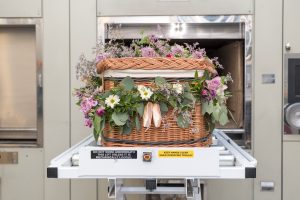
Credits: Unsplash
In Singapore, the final disposition of a deceased loved one is a deeply significant aspect of the grieving process. The nation’s cultural and religious diversity has given rise to a variety of burial and cremation practices, each carrying its own unique significance. Additionally, environmental considerations have started to play a more prominent role in these decisions. This article explores burial practices and cemeteries, cremation facilities and procedures, and the growing importance of environmental considerations in funerals in Singapore.
1. Burial Practices and Cemeteries
Chinese Burial Practices: Chinese communities in Singapore often practice burial, guided by the principles of feng shui. An auspicious burial site is selected, taking into account factors such as the deceased’s birthdate and the surrounding environment.
Malay Burial Customs: Malay Muslims in Singapore primarily practice burial in accordance with Islamic traditions. Quick interment is a key tenet of their customs, emphasizing respect for the sanctity of life.
Indian Burial Traditions: Among Singapore’s Indian communities, both burial and cremation are practiced. Burial rituals include specific prayers, offerings, and the placement of items like flowers and clothing at the gravesite.
Cemeteries in Singapore: Singapore has several cemeteries catering to various religious and cultural groups. Notable cemeteries include Choa Chu Kang Cemetery, which hosts Christian, Muslim, and Chinese sections, and the Bidadari Memorial Garden, known for its historical and cultural significance.
2. Cremation Facilities and Procedures
Cremation Procedures: Cremation involves the high-temperature incineration of the deceased’s body. In Singapore, cremation is carried out with precision and respect for cultural and religious customs.
Crematorium Facilities: Singapore has multiple crematoriums, each serving specific religious and cultural groups. For instance, Mandai Crematorium and Columbarium serves both Buddhists and Taoists, while the Choa Chu Kang Crematorium primarily serves Christians and Muslims.
Religious Services: Many crematoriums have dedicated prayer halls or chapels where religious services can be conducted before cremation. This allows families to perform religious rituals according to their faith.
Cremation Ashes: After cremation, the ashes are collected in an urn. Families can choose to keep the urn at home, place it in a niche at a columbarium, or scatter the ashes in a designated area.
3. Environmental Considerations
Land Scarcity: Singapore’s limited land resources have led to a preference for cremation over burial. Cremation is seen as a more land-efficient option, as it doesn’t require the extensive use of burial plots.
Eco-Friendly Initiatives: In response to environmental concerns, some crematoriums in Singapore have implemented eco-friendly initiatives. These include the use of energy-efficient equipment and carbon offset programs.
Bio-Cremation: Singapore is exploring alternative methods like bio-cremation (alkaline hydrolysis) that use less energy and have a smaller carbon footprint compared to traditional flame-based cremation.
Eco-Friendly Urns: Families concerned about environmental impact can choose biodegradable urns made from materials like paper, salt, or sand, which break down naturally over time.
Post-Funeral Matters
The period following a funeral is a crucial time for grieving, closure, and addressing practical matters related to the deceased. In Singapore, a multicultural society, these post-funeral matters can vary depending on cultural, religious, and individual preferences. This article explores post-funeral rituals and ceremonies, handling the deceased’s estate and belongings, and the availability of grief support and counseling resources in Singapore.
1. Post-Funeral Rituals and Ceremonies
Chinese Traditions: Chinese families often conduct post-funeral rituals, including memorial services on specific dates, such as the 7th and 49th days after death, and the first anniversary. These ceremonies involve offerings to honor the deceased’s spirit.
Malay Practices: Malay Muslims may have post-funeral gatherings where family and friends come together to recite prayers and remember the deceased. It is a time for mutual support and consolation.
Indian Customs: Indian communities may hold prayers and rituals on significant dates, such as the first, third, seventh, and 13th days after death. These ceremonies involve recitations, offerings, and honoring the deceased’s memory.
Non-Religious Practices: For those with non-religious or secular beliefs, post-funeral gatherings may focus on celebrating the life of the deceased. This can involve sharing stories, photos, and memories.
2. Handling the Deceased’s Estate and Belongings
Legal Matters: After a funeral, families must address legal matters related to the deceased’s estate. This includes matters like obtaining a Grant of Probate (if there’s a will), distributing assets, and settling debts. Seeking legal advice may be necessary.
Estate Executor: If the deceased appointed an executor in their will, that person is responsible for administering the estate. If there is no executor, family members may need to apply to become administrators.
Bank Accounts and Assets: Families should notify banks, financial institutions, and relevant authorities about the death. Bank accounts and assets may need to be frozen or transferred.
Personal Belongings: Deciding how to handle the deceased’s personal belongings can be emotionally challenging. Families may choose to keep, donate, or dispose of items based on sentimental value and practical considerations.
3. Grief Support and Counseling Resources in Singapore
Hospice Care and Bereavement Support: Several hospice care organizations in Singapore offer bereavement support and counseling services to individuals and families dealing with grief. These services can help in coping with loss and the grieving process.
Religious and Community Support: Religious institutions often provide grief counseling and support groups. Community organizations, particularly within specific cultural groups, may also offer assistance and counseling.
Professional Counseling Services: Mental health professionals, such as psychologists and counselors, are available to provide grief counseling and therapy to individuals and families.
Support Groups: Joining a grief support group can be immensely beneficial. These groups provide a safe space to share experiences, receive emotional support, and learn coping strategies.
Online Resources: Various websites and online platforms offer grief support resources, including articles, forums, and virtual support groups, which can be especially useful for those who prefer online assistance.
Changing Trends in Singaporean Funerals

Credits: Unsplash
Funeral customs and practices are evolving in Singapore, influenced by modernization, changing attitudes, and external factors like the COVID-19 pandemic. This article explores the shifting trends in Singaporean funerals, including the modernization of funeral services, emerging alternatives such as eco-friendly funerals, and the impact of COVID-19 on funeral practices.
1. Modernization of Funeral Services
Technology Integration: Funeral services are increasingly incorporating technology. Live-streaming of funeral ceremonies allows distant family and friends to participate virtually. Online memorial pages and digital guest books provide a space for sharing memories and condolences.
Personalization: Modern funerals are becoming more personalized. Families are opting for unique and meaningful ways to celebrate the life of the deceased, such as customized caskets, photo collages, and multimedia presentations.
Multi-Faith Services: Multiculturalism is driving the demand for multi-faith funeral services. Funeral directors are trained to accommodate various religious and cultural customs, ensuring that funerals respect diverse traditions.
Green Funerals: Increasing awareness of environmental issues has led to the adoption of eco-friendly funeral practices. Families are choosing biodegradable caskets, natural burial grounds, and cremation methods with a smaller carbon footprint.
2. Trends in Alternative Funeral Options
Eco-Friendly Burials: Traditional burial practices can be resource-intensive. Eco-friendly burials involve natural or green burial grounds where biodegradable coffins are used, allowing the body to decompose naturally and nourish the soil.
Bio-Cremation (Alkaline Hydrolysis): Bio-cremation is an emerging alternative to traditional cremation. It uses water and alkali to reduce the body to ashes, consuming less energy and producing fewer emissions than flame-based cremation.
Memorial Forests: Some families are choosing to plant memorial trees in forests. This sustainable option provides a living tribute to the deceased while contributing to reforestation efforts.
Ash Scattering at Sea: With Singapore’s proximity to water, ash scattering at sea has gained popularity. Families can choose to scatter ashes in a designated marine area, offering a serene and environmentally friendly option.
3. Impact of COVID-19 on Funeral Practices
Restrictions on Gatherings: The COVID-19 pandemic necessitated restrictions on gatherings, including funeral services. This led to smaller, more intimate funerals and a rise in virtual memorials.
Delay in Funeral Services: Due to the pandemic, some families experienced delays in holding funeral services. This posed emotional challenges, as grieving processes were prolonged.
Hygiene and Safety Measures: Funeral homes and crematoriums implemented enhanced hygiene and safety measures. This included the use of personal protective equipment (PPE) for staff and the provision of hand sanitizers for attendees.
Digital Transformation: The pandemic accelerated the adoption of digital tools in the funeral industry. Online funeral planning, virtual viewings, and digital condolence books became more common.
Conclusion
Funerals in Singapore, steeped in cultural significance, stand as a poignant bridge between the living and the departed. This comprehensive exploration of Singaporean funerals has illuminated numerous facets, spanning from intricate preparations, religious customs, and evolving trends to the vital post-funeral matters. As we conclude, it is evident that these rituals bear enduring cultural importance, mirroring Singapore’s commitment to safeguarding its rich heritage and honoring the remarkable diversity within its society. The article underscores the necessity of fostering respect for the diverse funeral traditions that thrive in Singapore’s multicultural tapestry, an endeavor that perpetuates unity, tolerance, and mutual understanding in this harmonious nation.
If you need any further assistance, please feel free to contact us at our 24/7 hotline – +65 8866 3326. We will respond to all enquiries promptly.


